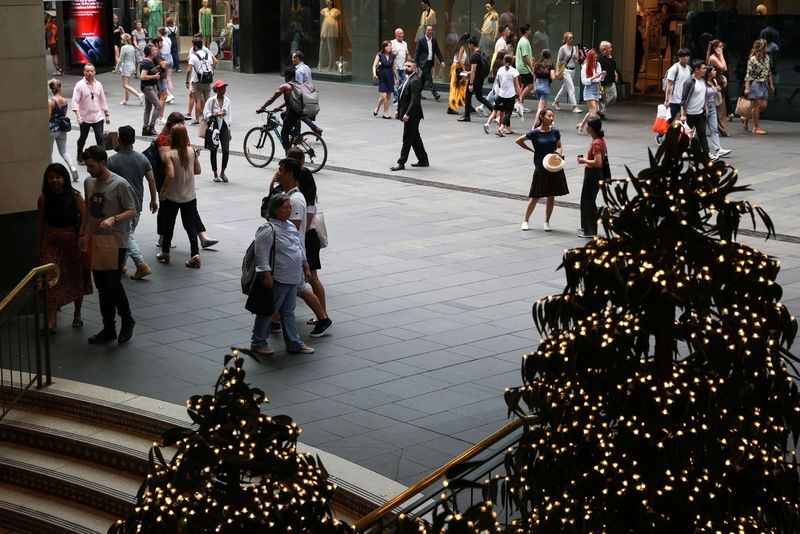Australia household spending slips in Sept, confounding rebound hopes
2024.10.31 22:51
By Wayne Cole
SYDNEY (Reuters) – Australian household spending fell in September as consumers cut back on clothing and cars, data showed on Friday, further confirmation that billions of dollars in recent tax cuts were being saved rather than spent.
That should be a downside surprise to the Reserve Bank of Australia (RBA) which had expected consumption to pick up in the second half of this year and could see it adopt a more dovish tone at a policy meeting next week.
“The data looks very weak over the last three months and surprisingly soft,” said Gareth Aird, head of Australian economics at CBA.
“If the data is close to accurate there will be no tax-cut induced rebound in consumption in the national accounts for Q3.”
The Australian Bureau of Statistics’ monthly household spending indicator (MHSI) showed a seasonally adjusted fall of 0.1% in September from August, when it rose 0.2%. Annual growth slowed sharply to 1.3%, from 2.7%, the lowest since August 2021 when a renewed COVID-19 outbreak hit Australia.
Spending on everything from food to cars, healthcare and travel, totalled A$69.9 billion in September, little changed from where it was at the start of the year.
Spending in volume terms was also weak, being down 0.4% in the entire September quarter compared to the same period last year.
That was a notably subdued performance given population growth is running at a rapid 2.5% pace and billions of dollars of tax cuts fattened consumer wallets from July.
The MHSI series will replace the current retail sales report from the middle of next year and is much broader in scope covering 68% of household consumption, more than double the retail survey. It also includes spending on new vehicles and patrol which are not in the retail numbers.

In particular, the survey includes spending on many services and should offer a better guide on what to expect from household consumption in the gross domestic product (GDP) report.
The MHSI is thus set to become much more important for markets once the retail series is phased out.







